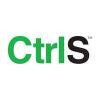AWS Engineer
10+ AWS Engineer Interview Questions and Answers

Asked in CtrlS

Q. What is the difference between Network Load Balancers (NLB) and Application Load Balancers (ALB) in AWS?
NLB and ALB are both AWS load balancers, but NLB operates at the transport layer while ALB operates at the application layer.
NLB is designed for extreme performance and low latency, making it suitable for TCP and UDP traffic.
ALB provides advanced routing capabilities and supports HTTP, HTTPS, and WebSocket protocols.
NLB supports static IP addresses, while ALB uses dynamic IP addresses.
ALB supports content-based routing and can route requests based on URL path or host headers....read more

Asked in CtrlS

Q. What is the difference between an IAM user and an IAM role?
IAM user is an entity that represents a person or application, while IAM role is an entity that represents a set of permissions.
IAM user is associated with long-term credentials (access key and secret access key) and is used to directly interact with AWS services.
IAM role does not have long-term credentials and is assumed by trusted entities, such as AWS services or applications running on EC2 instances.
IAM user has a fixed set of permissions, while IAM role can have temporar...read more

Asked in CtrlS

Q. What is the difference between security groups and NACLs?
Security groups and NACLs are both used for network security in AWS, but they operate at different levels of the network stack.
Security groups are stateful and operate at the instance level, controlling inbound and outbound traffic based on port, protocol, and IP addresses.
NACLs are stateless and operate at the subnet level, controlling traffic based on subnet IP addresses, port ranges, and protocol numbers.
Security groups are evaluated before NACLs, and if a security group a...read more

Asked in CtrlS

Q. What is Route 53, and what are the various routing policies available?
Route 53 is a DNS web service that routes end users to internet applications by translating domain names to IP addresses.
Routing policies include simple, weighted, latency-based, failover, geolocation, and multivalue answer.
Simple routing policy sends traffic to a single resource.
Weighted routing policy distributes traffic based on assigned weights.
Latency-based routing policy sends traffic to the region with the lowest latency.
Failover routing policy routes traffic to a stan...read more

Asked in CtrlS

Q. What is the use of a VPC Endpoint in Amazon S3?
VPC Endpoint in Amazon S3 allows direct access to S3 from within a VPC without going over the internet.
VPC Endpoint provides a secure and private connection between VPC and S3.
It eliminates the need for a NAT gateway or VPN connection.
It improves security by keeping traffic within the AWS network.
It reduces data transfer costs and improves performance.
Examples: accessing S3 buckets from EC2 instances in a VPC, using S3 as a data source for AWS Glue jobs.

Asked in TCS

Q. What tools have you used in AWS?
I have used a variety of tools in AWS including EC2, S3, RDS, Lambda, CloudFormation, and IAM.
EC2
S3
RDS
Lambda
CloudFormation
IAM
AWS Engineer Jobs




Asked in CtrlS

Q. What is a read replica in RDS?
Read replica is a copy of the primary database instance in RDS that allows read-only access to the data.
Read replicas can be used to offload read traffic from the primary database instance.
They can be created in the same region or in a different region for disaster recovery purposes.
Read replicas are asynchronous, meaning that changes made to the primary instance may not be immediately reflected in the read replica.
They can be promoted to become the new primary instance in ca...read more

Asked in CtrlS

Q. What is VPC Peering?
VPC Peering is a networking connection between two VPCs that allows them to communicate using private IP addresses.
VPC Peering enables inter-VPC communication within the same AWS region.
It is a secure and low-latency connection.
Peered VPCs can share resources like EC2 instances, RDS databases, etc.
Transitive peering is not supported, meaning VPCs cannot be peered through a peered VPC.
Peering connections can be established between VPCs in different AWS accounts.
Share interview questions and help millions of jobseekers 🌟


Asked in TCS

Q. Why is S3 used?
S3 is used for scalable storage, data backup, and hosting static websites.
Scalable storage solution for storing and retrieving large amounts of data
Data backup and recovery with versioning and cross-region replication
Hosting static websites with high availability and low latency
Integration with other AWS services like EC2, Lambda, and Glacier

Asked in IPAC

Q. Cost optimization in AWS
Cost optimization in AWS involves identifying and eliminating unnecessary expenses.
Use AWS Cost Explorer to analyze spending patterns
Implement auto-scaling to optimize resource usage
Use reserved instances for long-term usage
Use spot instances for non-critical workloads
Implement tagging to track and allocate costs
Use AWS Trusted Advisor to identify cost optimization opportunities

Asked in TCS

Q. Types of intances
Types of instances refer to the different configurations of virtual machines offered by AWS.
General Purpose Instances (e.g. M5, T3)
Compute Optimized Instances (e.g. C5, C6g)
Memory Optimized Instances (e.g. R5, X1)
Storage Optimized Instances (e.g. I3, D2)
Accelerated Computing Instances (e.g. P3, G4)

Asked in SCS Tech

Q. Private cloud vs public cloud
Private cloud is dedicated to a single organization, while public cloud is shared among multiple organizations.
Private cloud offers more control over security and customization
Public cloud is more cost-effective and scalable
Hybrid cloud combines elements of both private and public clouds
Interview Questions of Similar Designations
Interview Experiences of Popular Companies








Reviews
Interviews
Salaries
Users

















